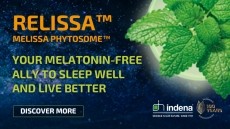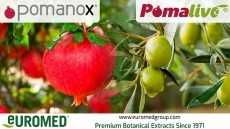Passion flower may boost sleep quality: Study
The research, published in the journal Phytotherapy Research, tested one cup of passion flower tea against a control tea made from parsley, finding that when volunteers consumed passion flower they reported an increase in sleep quality of around five percent.
“The finding that Passiflora incarnata improved perceived sleep quality appears to be the first evidence for the efficacy of the herb on subjective sleep quality in humans. This suggests that Passiflora incarnata may be a viable alternative for managing mild sleep quality complaints,” said the authors, led by senior author Dr Russell Conduit from the School of Psychology and Psychiatry at Monash University, Australia.
Passion for sleep
Around one-third of the worldwide population suffer from varying degrees of insomnia.
Dr Conduit and colleagues noted the use of herbal medicines as an alternative treatment for insomnia symptoms is increasing. They said this may be because herbal products are readily accessible over the counter and are generally perceived to be safe.
However, many traditional sedative herbs, such as passion flower (Passiflora incarnate), are currently used to aid sleep without scientific support for their efficacy and safety in humans.
Passion flower is a traditional folk anti-anxiety agent (anxiolytic) and sedative that is widely used in the treatment of anxiety and insomnia symptoms.
“To date, there is little scientifically validated evidence regarding either the constituents of Passiflora incarnata that are responsible for the speculated sedative and anxiolytic effects, or the plant's mechanism of action on sleep,” said the authors.
They explained that the new study aimed to investigate whether passion flower has a positive effect on aspects of human sleep relative to placebo of parsley tea. Dr Conduit and his co-workers explained that such effects would be evident from better subjective sleep reports from a sleep diary and from polysomnography testing (PSG – a diagnostic test that records the biophysiological changes that occur during sleep).
Study details
The researchers recruited 41 healthy volunteers, aged between 18 and 35 years. The volunteers answered questions concerning their health and sleeping patterns, and were asked to keep a sleep diary throughout the course of the trial.
Passion flower teabags (containing 2 grams of dried Passiflora incarnate) and parsley teabags (containing 2 grams dried Petroselinum crispum) were manufactured by Hilde Hemmes' Herbal Supplies Pty Ltd (SA, Australia) specifically for the present study.
All 41 participants were given each treatment for one week; they consumed one cup of either the passion flower or parsley tea and completed a sleep diary for seven days. All of the volunteers also completed an anxiety inventory survey on the seventh day, whilst ten participants also underwent overnight PSG on the final night of each treatment.
Conduit and colleagues reported that sleep quality showed a significantly better rating for the passion flower compared to the placebo, with an increase of over five percent in sleep quality reported.
However passion flower produced no significant changes in any of the PSG parameters.
“These initial findings suggest that the consumption of a low dose of Passiflora incarnata, in the form of tea, yields short-term subjective sleep benefits for healthy adults with mild fluctuations in sleep quality,” said the authors.
They added that the possible sedative effects of passion flower “should now be investigated in a sample of clinically diagnosed primary insomnia patients.”
Source: Phytotherapy Research
Published online ahead of print, doi: 10.1002/ptr.3400
“A Double-blind, Placebo-controlled Investigation of the Effects of Passiflora incarnata (Passionflower) Herbal Tea on Subjective Sleep Quality”
Authors: A. Ngan, R. Conduit













